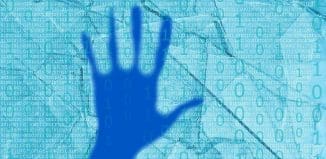Cyber-weapons: legal and strategic aspects
This post is also available in:  עברית (Hebrew)
עברית (Hebrew)
The protection of national strategic assets (which nowadays can be compromised by a cyber-attack almost instantly) is, and must always be, the priority ,whether we are facing cyber-warfare acts, or actions aimed exclusively at seizing the sensitive and/or classified information of governments.
A correct understanding of the concept of cyber-weapon – including a legal definition – is an urgent and inescapable decision that must be made. This will allow evaluating both the threat level coming from cyber-attacks, and the direct political and legal responsibilities of the authors of the attack. This is possible only in case the author of the attack is identified and legally charged for his actions, which is currently one of the most difficult problems to solve.
Nevertheless, only with the necessary clarifications of these definitions and the creation of a commonly accepted set of rules and information, will it be possible to start addressing the issues which urgently require a pragmatic response. The urgency
is apparent, especially now that, due to the lack of valid technical (traceability of attacks) and judicial (responsibility for the attacks) answers, the majority of the governments are trying to speed up the innovative and takeover processes of cyber-weapons, in order to easily steal confidential information, but also to possibly sabotage or damage the enemy’s military networks.
The challenges that governments, the Armed Forces and National Security Institutions are, and will be, facing increasingly in the field of cyber-security and cyber-intelligence are certainly as complex as they are fascinating. Cyber-weapons require adjustment and feedback approaches. They include both technical and technological research sectors and the strategic, tactical and operative ones, which, for the first time, are experiencing the vanishing of their typical sectorial partition, right through to the Internet and its technology. Defining with certainty when a cyber-attack to sensitive targets can be considered as a “violation”, or when it can have the nature of a real “armed attack”, represents a common priority by now, especially in a Western world which is interconnected and bases its entire social welfare on the functioning of information technologies.
The path was paved by the US Government, but an increased number of countries have started to modify their strategic philosophy, even providing for the launch of offensive military operations via the cyber-space. The future of cyber-attacks will be a challenging one.
To read to full article click here (PDF)
By Stefano Mele

Coordinator of the “InfoWarfare and Emerging Technologies” Observatory of the Italian Institute of Strategic Studies ‘Niccolò Machiavelli’.
Lawyer of Carnelutti Law Firm, where his activity mainly focuses on Information and Communication Technology Law, Privacy, Security and Intelligence.
Research Director on “Cyber-security & Cyber-Intelligence” of the Italian Military Centre for Strategic Studies (Ministry of Defense).
He is a Lecturer for several universities and military research institutions.
He holds a PhD from the University of Foggia.
The Italian Institute of Strategic Studies
“Niccolò Machiavelli” is a cultural non-profit organization founded in Rome in 2010.






























